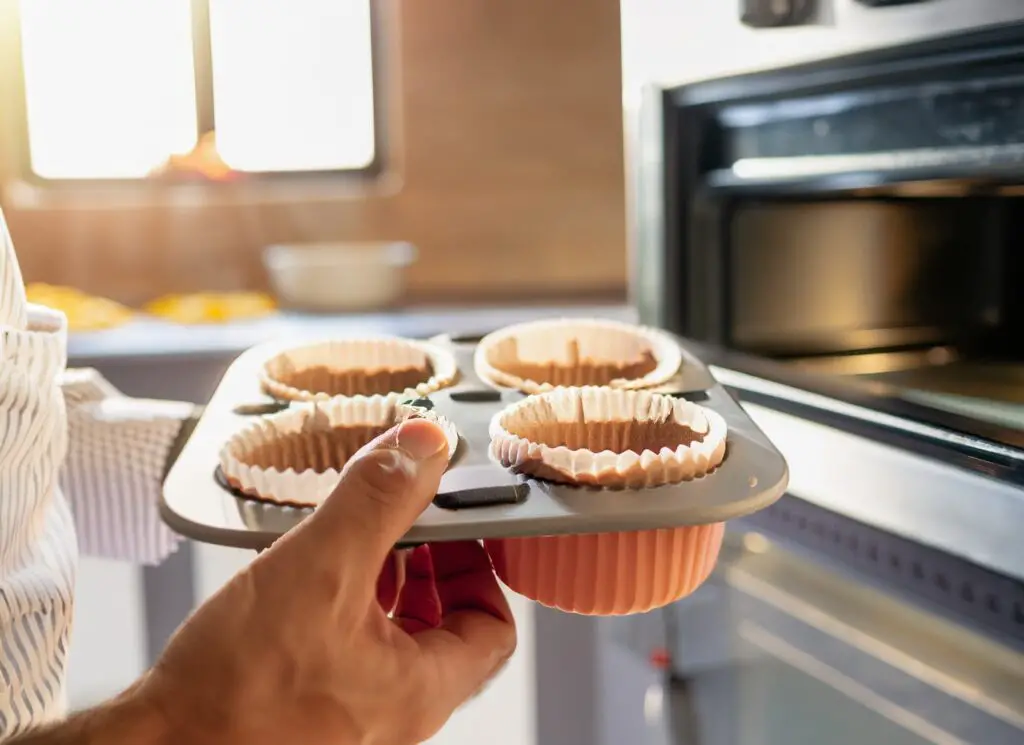As an Amazon Associate KitchenwareSets.com earns from qualifying purchases.
Is Silicone Bakeware Safe to Use: Know Before Baking
As a professional baker, I have always been interested in the safety of the tools I use in my kitchen. Recently, I have received many questions about the safety of silicone bakeware. That’s why I decided to write this comprehensive blog post to answer the question on everyone’s mind – “Is Silicone Bakeware Safe to Use?”
If you’re an avid baker, you may be wondering if silicone bakeware is safe for your health and if it is a suitable alternative to traditional metal, glass or ceramic bakeware. In this article, I will provide you with all the information you need to know about silicone bakeware. From its composition to its benefits, and how to choose safe silicone bakeware; you’ll find everything here.
Table of Contents
What is Silicone Bakeware?
Silicone bakeware is a type of cooking tool that is made from a synthetic polymer. It is often used as an alternative to traditional metal, glass, or ceramic bakeware. Silicone is a synthetic ‘rubber’ that contains bonded silicon and oxygen and, in some cases, carbon. It is heat-resistant, freezer safe, and oven safe, but only up to 428 degrees Fahrenheit or 220 Celsius. It shouldn’t be put in the dishwasher, however, and as it doesn’t biodegrade and cannot currently be recycled, it’s not exactly eco-friendly.
What is the Composition of Silicone?
Silicones are synthetic polymers made up of repeating units called siloxanes, which consists of alternating oxygen and silicon atoms. These materials can be tailored to have different properties such as hardness, elasticity, and thermal stability, making them ideal for various applications, including cookware.
Is Silicone Bakeware Safe for Cooking?
Yes, silicone bakeware is safe for cooking. It is non-toxic and does not contain any harmful chemicals that can leach into your food. High-quality, food-grade silicone cookware is said not to affect the flavor of food, or react with food or drinks, and manufacturers claim that it doesn’t release any odors or toxic fumes during cooking.
Is Silicone Bakeware Safe for Health?

Silicone bakeware is safe for your health. As long as you choose high-quality, food-grade silicone, you can use it confidently in your kitchen without any risk of harmful exposure to chemicals.
Benefits of Using Silicone Bakeware
Silicone bakeware comes with a range of benefits that make it a popular choice among home bakers and professionals alike.
Non-stick properties
One of the most significant benefits of using silicone bakeware is its natural non-stick properties. You don’t need to use oil or butter to grease the pan before baking, which makes it an excellent option for oil-free or low-fat cooking. It also means that you won’t have to worry about food sticking to the pan or breaking apart when you try to remove it.
Easy to clean
Silicone bakeware is dishwasher safe, making it effortless to clean. If you prefer to wash it by hand, it’s equally easy to clean with soap and water.
Versatility
Silicone bakeware can be used in the oven, microwave, and freezer, making it a versatile tool in the kitchen. It is also reusable and can withstand repeated use without showing any signs of wear and tear.
How to Choose Safe Silicone Bakeware
When choosing silicone bakeware, there are a few things you should keep in mind to ensure that you’re getting a safe product.
Look for FDA-approved silicone
Make sure that the silicone used in the bakeware is approved by the FDA for food contact. This ensures that the silicone has been tested and deemed safe for use in contact with food.
Avoid cheap silicone
Cheaper silicone may contain fillers that can be harmful to your health. Be cautious when buying silicone bakeware that is priced lower than the market average.
Check for odor
If the silicone bakeware has a strong odor, it may contain harmful chemicals. It’s always best to avoid such products and opt for ones with little to no smell.
Other Questions About Silicone Bakeware Safety
Some people might have more specific questions regarding the safety of silicone bakeware. Here are some answers to other common questions:
Is Silicone Bakeware Safe for Birds?
Silicone bakeware doesn’t pose any danger to birds as long as they don’t ingest it. However, if you have pet birds, make sure to keep them away from silicone bakeware and never let them chew on it.
Is Silicone Cookware Safe for Birds or Parrots?
According to several bird and parrot forums, silicone cookware is generally considered safe for birds. However, it is important to ensure that the silicone is of high quality and does not contain any harmful chemicals. Some sources caution against using silicone oven mats, which can be deadly for birds. It is always best to do thorough research and consult with a veterinarian before introducing any new materials or products to your bird’s environment.
Is Silicone Bakeware Safe in Oven?
Yes, silicone bakeware is safe to use in the oven up to 428 degrees Fahrenheit or 220 Celsius. Just make sure not to exceed this temperature as it can cause the bakeware to melt or release odors.
Is Silicone Bakeware Safe in Microwave?
Silicone bakeware is microwave safe, but you should always check the manufacturer’s instructions before using it in the microwave. It’s also important to note that silicone bakeware shouldn’t be used in a conventional oven that has a broiler setting.
Is Silicone Bakeware Dishwasher Safe?
No, silicone bakeware shouldn’t be put in the dishwasher. The high heat and detergents used in dishwashers can damage the bakeware and break down its non-stick properties. Instead, wash it by hand with soap and water.
Is Silicone Cookware Microwave Safe?
Yes, most silicone cookware is microwave safe. Always check the manufacturer’s instructions before using it in the microwave.
Is Silicone Bakeware from China Safe?
The safety of silicone bakeware from China depends on the quality of the product. If you’re concerned about the safety of a particular brand or product, it’s best to research it thoroughly, read reviews, and choose a reputable brand.
Conclusion
Overall, silicone bakeware is a safe and versatile tool for cooking and baking. As long as you choose high-quality, FDA-approved silicone, you can feel confident using it in your kitchen. Its non-stick properties, easy-to-clean surface, and versatility make it an excellent choice for both home bakers and professionals. Remember to always look for food-grade silicone, avoid cheaper products, and watch for any strong odors that may indicate harmful chemicals.
FAQs
Does silicone release toxins when heated?
According to multiple sources, including Health Canada and the FDA, food-grade silicone does not release toxins or produce hazardous fumes when heated. However, some studies have shown that certain types of silicone products, such as those containing siloxanes, can leach chemicals at high temperatures. Overall, silicone is considered safe for food use by many experts and authorities.
What are the pros and cons of silicone bakeware?
Silicone bakeware has several pros and cons. Some of the pros include that it is non-stick, so you don’t need to use much oil, it is flexible and can be folded for storage, and it is easy to clean and dishwasher safe. However, it has some cons as well. It is not suitable for high-temperature cooking as it can only withstand up to 428 degrees Fahrenheit or 220 Celsius. Additionally, some people may not like the texture of baked goods cooked in silicone bakeware.

